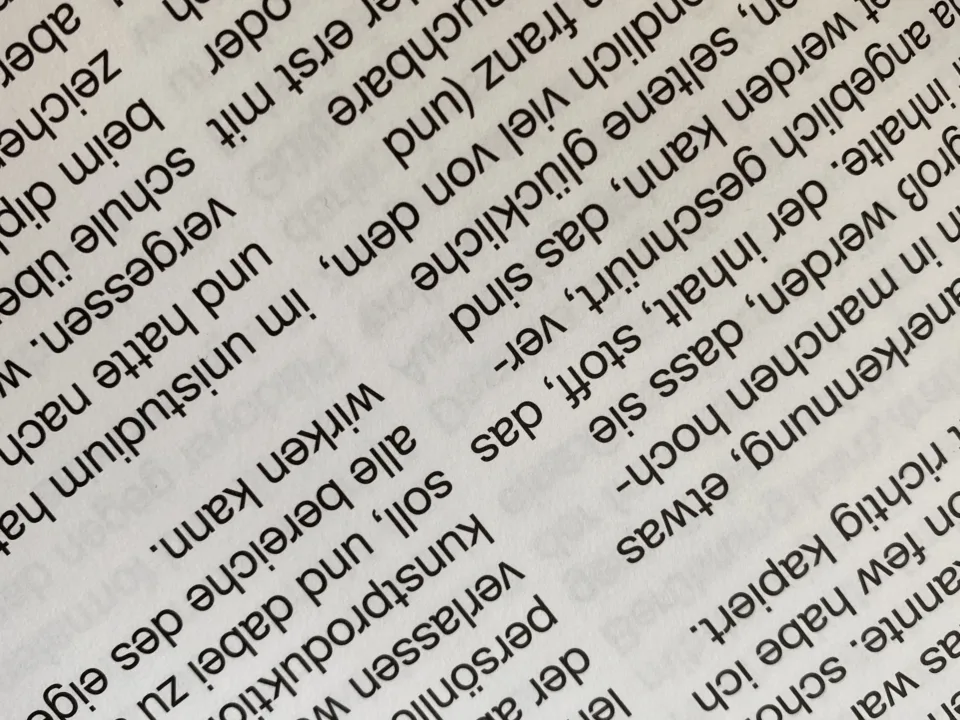This blog series is an homage by four former students of the artist and teacher Franz Erhard Walther. In a poetic, fragmentary and anecdotal manner, they speak of formative memories from their study years, as well as of the longing, praise and uncertainties in their search for their own artistic language. For us, they have a look back in time.
i met few just after denmark had surprisingly won the european football championship. i had just walked around hamburg, speaking texts into the dictaphone—observations, comments on what i had seen, as well as curses; and, without going into it any further, he seemed to suspect that the whole long walk on the outskirts of the city was also a kind of walk through my own small-town past. instead, he pointed out to me that walking around was also a sculptural action, a means of giving form, and that my whole self in the texts was probably the material to be formed. ‘huh, what do you mean?,’ i thought. regarding my drawings, he said he liked them, because they were unpretentious. that was a word i didn't know yet. it’s actually tragic—it was the only praise I ever received from few; and, at that moment, i didn’t really understand it at all.
the longing for recognition, something like praise, can become so great in some school settings that it makes you deaf to content. the content, the substance, the package that can be purportedly tied up, sent off, and opened there—this is wishful thinking, rare strokes of good fortune. so very much of what i had been told there, by franz (and others)—clever thoughts, useful terms, good advice—I either understood only after a few years or did not want to hear at all. sometimes, i would spend a long time looking at the hair on the back of franz’s hands and fingers while he leafed through my drawings—or empathising with those who had overcome themselves and presented their work, visibly overwhelmed by the question as to the concept behind the work. my parallel studies at uni constantly made it clear to me how little i had learned at art school, and yet i never doubted the purpose of my studies with few. it was even something like the only constant in the shaky little self that searched around. no one would ever be interested in my art—of this i was sure; but i also had it drilled into me that this was in no way what it was supposed to be about. it’s about not being lukewarm, not wanting to possibly but rather by all means to say something, and that saying something also means constantly reflecting on your own language and, in a kind of lifelong on-call service, understanding yourself as a head, body and soul that are to be formed in all, indeed all, everyday occurrences.
where does the radicality in artistic decisions come from?
perhaps from the rejection of your own personal history, which must be abandoned at all costs if art production is to be directed at everyone, all the while sensing how art can affect all areas of your own life.
during my studies at uni, i understood all this—but after five years, i had already forgotten it all again. what i did in fact learn at art school, i would not have been able to summarise during my final exam in more than 3,252 characters (incl. spaces), but it accompanies me in my whole life, both professional and private.
few would have never formulated it that way, but he would have constantly repeated its essence: the work of art is strictly forbidden to merely stand there in the corner and look beautiful; it should be able to want something, because otherwise it is nothing.
Peter Piller (*1968) was born in Fritzlar, Hessen and has lived in Hamburg since 1990. He completed his studies with Franz Erhard Walther at the University of Fine Arts in Hamburg in 2000. From 2006 to 2018, Piller was a professor of photography in the Institute of Book Design at the Academy of Fine Arts Leipzig. In 2018, Piller joined the staff of the Düsseldorf Art Academy to head the free art class, succeeding Andreas Gursky. For his own artistic practice, Piller has built an extensive photo archive, which includes photographs of German dailies. He arranges these according to themes and presents them in series characterized by subtle humor.
Read more artist texts of this series written by Stef Heidhues, John Bock and Christian Jankowski.
